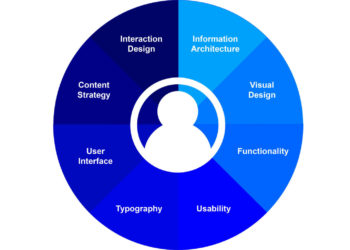Later this month, I’ll be moderating a debate on a topic related to scholarly communication. For this one, the proposition is “Resolved: The world would be a better place if funders, rather than readers and libraries, bore the costs of scholarly publishing.” It will take place at the Researcher to Reader Conference*, and should be an excellent discussion – the debaters are Lynn Kamerlin and Sybille Geisenheyner (arguing in favor of the proposition) and David Worlock and Sven Fund (against). I’ve moderated several such debates at the R2R Conference now, and have either participated in or moderated others over the years at the Charleston Conference as part of that event’s Hyde Park Debate series (including this one just a couple of months ago).
Realizing that I’ve been doing this for some time now, I’ve been reflecting recently on why it is that I keep returning to this format. And I’ve come to the conclusion that there are two reasons: a functional one, and a philosophical one.

Functional Reason
Let me start by describing how these debates work. The format is loosely structured on the Oxford Union approach: well before the event, each debater (or team, if there’s more than one on a side) prepares a written opening statement. Each side’s statement is provided to the other at least two weeks before the event, giving each side time to prepare a response. (For obvious reasons, the opening statement can’t be changed after it’s been submitted to the other side; however, the responses may be edited right up until they’re given.) At the event, the audience is first polled to see how many agree with the proposition under debate, and the result of that vote is recorded by the moderator. Then each side makes its opening statement, and then each offers its response to the other; strict time limits ensure that both sides have equal access to the podium. Following the opening statements and responses, the audience is given time to ask questions and make comments. When the discussion period is over, the audience poll is taken again; whichever debate side has moved the most votes is declared the winner. (Here it’s worth noting that the winning side is not necessarily the one that has the most votes at the end of the debate; it’s the one that has moved the most votes to its side.)
So what’s the functional reason for this approach? A formal debate creates a space in which conflicting ideas can be presented on a reasonably level playing field. The structure of the debate makes it less likely that the person with the strongest personality will be able to dominate the conversation; the moderator ensures that each debater is given equal time, and no one is able to interrupt or shout down anyone else. True, not everyone has the same stage presence or rhetorical flair or ease with public speaking, but everyone is treated equally within the debate structure, and that makes a real difference. To the degree that the intervening variables of charisma and blarney can be controlled for, the ideas themselves can compete on a reasonably equal ground.
A formal debate creates a space in which conflicting ideas can be presented on a reasonably level playing field.
Now, I realize that this argument will set off alarm bells for those attuned to any hint of neoliberalism, with its focus on concepts like a “marketplace of ideas” and its assumptions that such “marketplaces” always offer fair grounds for competition. This brings us to the philosophical reason that I’m drawn to formal debates.
Philosophical Reason
Of course we all understand that the “marketplace of ideas” model is a bit simplistic. But that doesn’t mean it’s without value, and it doesn’t mean that ideas shouldn’t, in fact, be allowed to compete with each other. And just because an approach or proposition can reasonably be characterized as “neoliberal” doesn’t automatically make it wrong, any more than an approach or proposition that could fairly be characterized as “socialist” or “conservative” or “middle of the road” or “radical” should therefore be dismissed out of hand.
And in fact, I find that the “marketplace of ideas” is one concept to which I really do subscribe. Surely there’s no proposition more fundamental to scholarship and intellectual inquiry than the idea that students and scholars should be exposed to a diversity of ideas and perspectives, and should be helped to learn how to evaluate them and, where necessary, choose between them. Does this presuppose a particular ideology – one founded in the assumption that reason is fundamental and that rational analysis of arguments is an indispensable element of education? Well, yes – I guess it does.
I regard debate programs in much the same way I regard open access: I think they’re great, but I don’t think they ought to be the only kind of conference presentation there is.
There’s a meta element to this argument as well: to say that the debate format is a good one is not to say that it’s the only good one. Certainly it works better for some kinds of discussion than for others, and it seems to me that like ideas themselves, the debate format should be allowed to “compete” with other formats in the “marketplace” of presentation and discussion formats. To put it another way: I regard debate programs in much the same way I regard open access: I think they’re great, but I don’t think they ought to be the only kind of conference presentation there is.
All of that being said, I have yet to either host or participate in a formal debate program that, in my view, failed to provide good value for the time its attendees invested in attending it. For one thing, they’re always fun; sometimes they’re hilarious, and almost always I’ve come away with new insights and new ways of thinking about the issues under discussion, thanks to the perspectives of those with whom I’ve been debating or whom I’ve observed in my role as a moderator. Audiences seem to agree – in my experience these programs are always well attended and get consistently high ratings from those who come to listen and participate.
And apart from the contribution these programs make to the conferences themselves, they do something else that I think may be equally (if not more) important: they demonstrate that even at a time when public discourse is increasing characterized by hectoring, bullying, shouting-down, and personal attack, it’s still possible for reasonable and well-informed people of good will to disagree with each other in a civil and intellectually rigorous way and actually advance public understanding of important issues by doing so. I find it very refreshing.
* Disclosure: I serve as a volunteer member of the advisory board of the Researcher to Reader Conference, in which capacity I help to organize the program. I am not paid to do so, and have no financial interest in the conference.
Discussion
8 Thoughts on "Why I Keep Hosting Debates: A Personal Reflection"
Your last paragraph is the most important in my view. Just demonstrating the practice of respectful disagreement, in any forum, has great value in this day and age. Go check out the Google Books Ngram viewer of the word “disagree”, and you’ll see a steady upward trend of the usage of that word from 1910-2000, and then a very sharp downward trend since then. Conversely, words like “offended” and “hateful” show almost mirror opposite trends to “disagree” in the same time frame.
I see this is part of the larger societal trend that you correctly reference, where people either are unable, or perhaps afraid to, have conversations with people with other points of view in order to possibly learn or understand a different perspective; all while remaining calm, respectful, and while staying engaged. The fact that these debates actually change minds, in real time, is fantastic as well as it shows how people can learn and change their perspective. Cheers and I look forward to more of these debates!
Very interesting, Rick; thanks for sharing. While I’ve not (yet, I hope) attended one of these debates, I love the structure as you describe it and totally agree with @THarper as to your concluding paragraph. We see so little rigorous civil discourse in this day and age. Anything we can do to encourage more of it is welcome. Good on you!
Thanks Rick! Important points here. I’ve always enjoyed your debates in Charleston immensely and hope we’re able to continue them in the future!
Rick, you left out an interesting part of the format. I presume this is your part. Picking the resolution, and finding individuals to represent the proposition and the opposition. How do these choices come about? Is this the personal reason behind your debate longevity? Confess. [Tone intended here for those who do not know that we know each other : the nicest possible tone.]
Hi, Bob —
Good questions. Unfortunately, I don’t really have very interesting or insightful responses. In order to come up with topics, I sometimes think about interesting things going on in the scholcomm world at the moment, and sometimes I try to address more evergreen issues, or deeper questions that lie beneath the current controversies. The proposition is what really drives the selection of individuals to invite — and the fact that you need people who can formulate a compelling argument and present it in a reasonably passionate (but professional) way. Luckily, we have lots of folks in our community who fit that bill.
The debates at Researcher to Reader are certainly very popular and well-regarded. In our satisfaction survey, delegates gave them top ranking in 2021 and 2020 (disclosure: I chair this conference, commission the debates, and manage the satisfaction survey; and while I have a financial interest in the conference, it has – to my continuing disappointment – not paid me a bean so far).
Apart from being exceptionally well prepared and run by Rick, the key to their success is, as he has suggested, using the debate format for the right sort of question. Some topics suit this structured and binary approach, while others are better handled in a presentation, conversation or collaboration format. We have been criticised on the grounds that a debate is ‘competitive’ and ‘confrontational’, but R2R has plenty of collaborative work in the programme, such as our workshops. (We have managed to sustain our collaborative conversations in an online environment, and will do so in a hybrid format later this month).
The debate format is designed to impose (on the speakers and audience) some structure and clarity on issues which seem to me to be more commonly argued with quasi-religious fervour and sly sophistry, and they try to generate, as Rick has said on our podium, more light than heat. Although some debaters are still very passionate about their subjects, and in their delivery!
The past R2R Debates are available on YouTube here:
https://www.youtube.com/watch?v=JQi36ph939Y
https://www.youtube.com/watch?v=3api5gJM1HM
Rick, I am only now getting to your very interesting post. I want to take a (characteristically) contrarian position. You make a good case for distinguishing between the merits of one’s idea and the many other aspects of a communication that someone can bring to it: presence, strength of personality, etc.–all these icky things that we humans, in our weakness, succumb to. My view is that those icky things are very much part of the proposition. Pace Plato, ideas do not exist in a super-reality; they are embodied in people and institutions, and the merits of those participants are very much involved with the living reality of pushing and shoving. This is my problem with formal debates: they exist under the pretence that we are not human, don’t have interests and the will to fight for them. Sorry to bring a breath of Nietzsche to this urbane environment, but (sadly) what matters in the end is who is left standing, not who observed the rules.
Well, it seems to me that every approach to public discussion is going to have pros and cons. Certainly a formal and highly-structured debate doesn’t magically neutralize the debate participants’ unique personalities and strengths and weaknesses — but it does create a different kind of discussion than, say, a presidential debate (with all of its crosstalk and interrupting and multiple questions). And a panel discussion creates yet another kind. And so forth. When it comes to formats, I’m with Mao: let a hundred flowers bloom.



